MercoPress. South Atlantic News Agency
Tag: Brazil economy
-
Monday, April 20th 2015 - 06:51 UTC
Brazil tells IMF it's working with Congress to restore fiscal balance and structural change
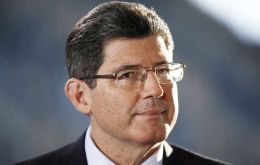
Brazil is working with Congress on a broad agenda of structural changes to improve the business climate, increase productivity and set price signals correctly to stimulate investment, announced Finance minister Joaquim Levy in his speech to the International Monetary and Financial Committee (IMFC) this weekend.
-
Wednesday, April 15th 2015 - 07:46 UTC
Brazil's economy expected to contract 1% as challenges remain unaddressed, says IMF report
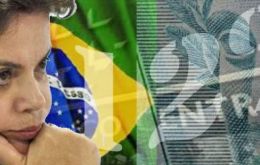
The International Monetary Fund expects Brazil's economy to contract by one percent this year, it said Tuesday, slashing its previous forecast of 0.3% growth. The world's seventh-largest economy is being hit by inflation, private-sector doldrums and a massive corruption scandal at state oil giant Petrobras, the IMF said in its latest forecast.
-
Monday, April 13th 2015 - 09:08 UTC
Hundreds of thousands take to the streets of Brazil to protest against Rousseff

Hundreds of thousands of Brazilians took to the streets on Sunday, venting anger over government corruption and a souring economy a month after protests gathered more than a million people. With cries of “Dilma out” and “corrupt government,” marchers -- many wearing the yellow and green jerseys of the national football team -- called for President Dilma Rousseff's ouster and an end to impunity for corruption.
-
Monday, April 6th 2015 - 16:56 UTC
Brazilian economy to contract 2% this year, and inflation 9% predicts French bank

BNP Paribas said in Sao Paulo that it expects Brazil's gross domestic product to shrink 2% this year, or double the contraction the French financial services company had projected one quarter ago.
-
Thursday, April 2nd 2015 - 08:20 UTC
Brazil’s industrial production drops in February; 11 out of 24 sectors down
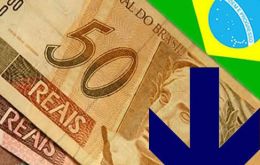
Brazil's industrial production dropped in February after a momentary uptick at the beginning of the year, as factories and mines braced for what economists say could be the country's worst year in more than two decades.
-
Tuesday, March 31st 2015 - 12:08 UTC
Brazil's development bank admits losses of 800m dollars on Petrobras stock
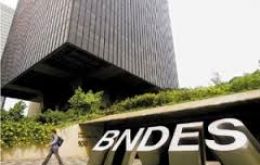
Brazil's state-run National Development Bank posted healthy profits Monday, but indicated losses of some 800 million dollars on its stock in Petrobras, whose market value has plunged on a graft scandal and lower oil prices.
-
Saturday, March 28th 2015 - 11:15 UTC
Brazil just managed to skim recession last year with 0.1% growth but is expected to shrink in 2015

Brazil's economy grew just 0.1% last year, barely keeping the country out of a recession, the government's statistics bureau said on Friday. It was the worst result since 2009 and bad news for President Dilma Rousseff, whose popularity has plummeted along with Brazil's economic performance.
-
Friday, March 27th 2015 - 08:23 UTC
Brazil's central bank forecasts economy will contract 0.5% and inflation climb to 7.9%
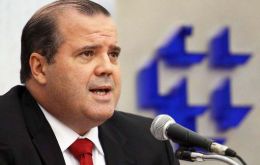
Brazil's economy will contract 0.5% in 2015 and inflation will climb to 7.9%, ending the year far outside the tolerance range, the Central Bank admitted on Thursday in its latest quarterly inflation report.
-
Tuesday, March 24th 2015 - 05:08 UTC
Brazilian economy on path to biggest contraction since 1990, says central bank survey

Financial experts expect Brazil's economy to shrink 0.83% in 2015, its biggest contraction since 1990, and inflation to climb to 8.12%, its highest level since 2003, according to the results of a Central Bank survey released on Monday.
-
Thursday, March 19th 2015 - 07:26 UTC
Uruguay's Economy minister warns about Mercosur and Brazilian situation
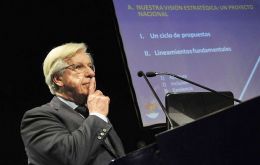
Uruguay's Economy minister Danilo Astori warned about the new regional and international context, not so favorable to his country's interests as in recent years, and underlined that Mercosur is going through one of its worst moments since foundation in 1991.
